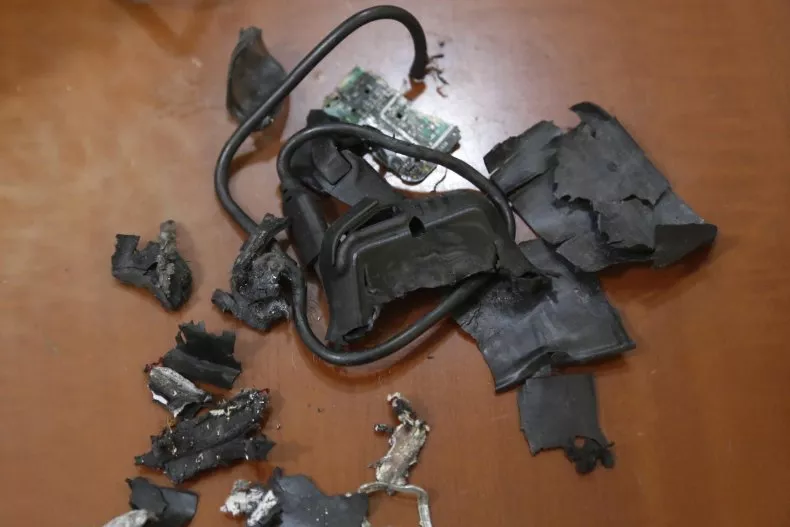For years, Hezbollah leaders urged their rank-and-file to reduce reliance on smartphones, arguing that Israel was able to bug those devices to infiltrate their communication network. The alternative was to go back to the 1990s-era technology of pagers and walkie-talkies, seen as a safer option.
Hezbollah believed that the limited capabilities of pagers allowed them to receive data without revealing a user’s location or other compromising information. This belief came right from the top, with Hezbollah chief Hassan Nasrallah urging his members to “bury” their cellphones, worried the Israelis could hack them and discover their movements.
Then this week, Israeli intelligence showed Hezbollah — and the world — that even the most rudimentary consumer technology is no longer safe in an era of advanced warfare.
On Tuesday, pagers used by hundreds of Hezbollah members exploded almost simultaneously across parts of Lebanon and Syria, leaving at least a dozen people dead and more than 2,700 injured.
The following day, 20 more were killed, and hundreds wounded when walkie-talkies in Lebanon also mysteriously exploded. Many of the dead and injured were thought to be Hezbollah members, though there were civilian casualties among them, according to reports in Lebanese media.
The details of how Israeli intelligence carried out the operation, said to be 15 years in the making, are still coming out. It’s believed, according to some reports, that Israeli intelligence set up a fake company in Budapest with the explicit aim of selling the explosive-laden pagers to Hezbollah, correctly predicting the militant group would come looking for them.
The coordinated operation, experts told Newsweek, underscores a global shift in battlefield dynamics, where traditional tactics are increasingly giving way to advanced technologies like explosive devices and kamikaze drones powered by artificial intelligence — often leveraging consumer electronics that are readily available online.
Attar emphasized the growing vulnerability of civilian infrastructure to increasingly sophisticated cyberattacks. He warned that an advanced, coordinated cyberattack on cars or airplanes could result in mass casualties within seconds, as these systems are increasingly integrated with digital controls that can be compromised.
“If hackers manage to breach airplane systems, we’d face a global catastrophe, with planes falling from the sky. It’s a frightening thought, but as a researcher, I expected this long ago,” he said.
“With the proliferation of mobile devices and chips everywhere, we have far more offense than defense.”
Read more at Newsweek.com



